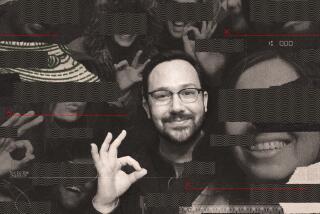U.S. settles suit over scholar
- Share via
The U.S. government has agreed to pay $880,000 to the estate of Roxanna Brown, the 62-year-old Southeast Asia scholar who died in federal custody last year.
Brown was arrested in May 2008 amid a federal investigation into donations of allegedly looted Thai antiquities to four Southern California museums. Four days later, while awaiting a court hearing, Brown suffered a perforated ulcer and died in her cell at a federal detention center in Seattle.
In their lawsuit, Brown’s family said her death was the result of negligence and callousness by federal authorities, who had charged her with a single count of wire fraud and allegedly failed to provide her adequate medical treatment after she became ill. Affidavits from fellow prisoners filed in the suit described Brown writhing in pain and crying out for help before she died.
“Ms. Brown’s death was the result of a series of unfortunate events which we regret,” said Emily Langlie, spokeswoman for the U.S. attorney’s office in Seattle. “We decided it was in the best interests of the government to resolve the case, and we worked cooperatively with Ms. Brown’s family to reach this settlement.”
The settlement leaves unanswered broader questions about Brown’s role in the alleged scheme.
As The Times revealed in a series of stories last year, Brown was both an informant to investigators and a target of their inquiries before her death.
Brown, who received her doctorate from UCLA, lived in Vietnam and Thailand for years and dedicated her life to the protection and study of Southeast Asian ceramics.
But documents filed by government investigators suggested that Brown also sold Thai antiquities to Robert Olson, an alleged smuggler from Cerritos. She also allegedly appraised objects for Jonathan and Cari Markell, Los Angeles gallery owners whose clients then allegedly donated objects to local museums for inflated tax write-offs.
In January 2008, hundreds of federal agents raided the Bowers Museum in Orange County, the Pacific Asia Museum in Pasadena, the Mingei Museum in San Diego and the Los Angeles County Museum of Art, along with nine other locations in California and Illinois.
Brown was expected to play a key role in the ensuing case, and her death has been a setback to investigators. Since her arrest, made as she visited Seattle for a lecture, there have been no public moves in the case, and some museum officials have voiced frustration at the pace of the investigation.
“It would be nice to finally be able to put this behind us,” said Joan Marshall, director of the Pacific Asia Museum. She was awakened at home during the raids and interrogated by federal agents while in her bathrobe.
Thom Mrozek, a spokesman for the U.S. attorney’s office in Los Angeles, would not comment other than to say it is an “active, ongoing investigation.”
The Brown family’s attorney Tom Ford sees it differently.
“She’s collateral damage in an investigation that doesn’t seem to be going anywhere,” he said.
Brown’s adult son and sole heir, Taweesin “Jaime” Ngerntongdee, could not be reached for comment. Karen Lindner, Brown’s cousin, said the settlement has provided some closure for the young man, who will use the money to complete his graduate education and create a memorial for his mother, who directed a ceramics museum in Bangkok.
“At the end of the day,” Lindner said, “he felt they had admitted their mistake.”
--
More to Read
Sign up for Essential California
The most important California stories and recommendations in your inbox every morning.
You may occasionally receive promotional content from the Los Angeles Times.









